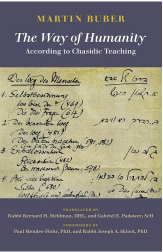Drawing on published works associated with R. Levi Yitshak, Arthur Green has written a lively biography of this mysterious figure who is thought to have spearheaded Hasidism in Eastern Europe.
Unlike his inspiration, Rabbi Dov Baer of Mezritch, who preferred that individuals dedicate themselves exclusively to God, R. Yitshak believed that the religious values of Hasidism would find fertile ground among the Jewish masses. Following Rabbi Baer’s death, he urged his colleagues to develop a program that would both relate Judaism to the average Jew and produce “Tzaddikim” who subscribed to highly intense standards of spirituality.
Green describes the corrupt leadership that existed in both the Jewish and non-Jewish worlds, as well as the formal denunciations and even bans against Hasidut by the leadership of Lithuanian Jewry. R. Yitshak’s exceptional integrity shines through in Green’s analysis: he becomes not only a leader of Hasidism, forced out of distinguished rabbinic positions in Zelechow and Pinsk, but also a skilled polemicist, taking on Hasidut’s detractors.
Green has the challenge of writing about someone who passed away more than two centuries ago, and who left very few clues about his fundamental beliefs. As a result, many of the author’s conclusions seem highly speculative. In the chapter entitled “Pleasures Sublime and Worldly in the Religious Realm,” Green describes the erotic aspects of Kabbalistic Judaism and their transformation by some Hasidim into a program emphasizing a parent-child relationship, with God as parent and Hasid as child.
The first part of the book is devoted to the description of R. Yitshak’s meteoric rise to leadership in early Hasidic circles; Green then turns to the mysticism on which Hasidism is based. Finally, he suggests that a continuum can be traced from Levi Yitshak to current-day secularists:
How much gap is there between that view of reality and the claim of the earliest Zionist or Bundist leaders, less than a century in the future, who saw themselves living in a Godless universe, but still loving Israel? … Might Levi Yitshak … have served as a bridge … between two eras, with their very different views of how to replace the absent divine hand and bring about Israel’s … redemption?





